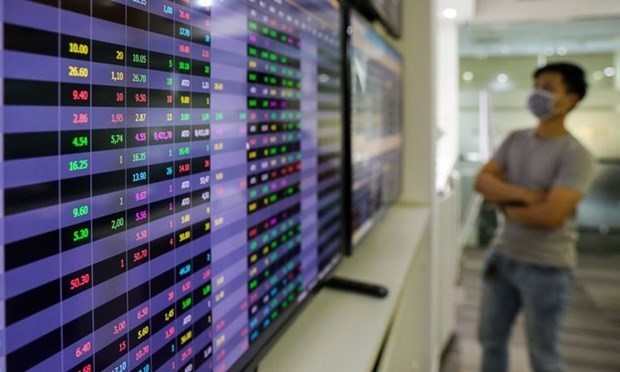The average daily trading value on Viet Nam’s stock market has reached more than VND30.84 trillion (US$1.34 billion) per session so far this year, up 15.9 per cent from last year’s figure and now the second largest in ASEAN, only after Thailand, according to the Ministry of Finance.

The average daily trading value on Viet Nam’s stock market has reached more than VND30.84 trillion (US$1.34 billion) per session so far this year, up 15.9 per cent from last year’s figure and now the second largest in ASEAN, only after Thailand, according to the Ministry of Finance.
By the end of March, the market size had risen by 3.37 per cent from last year to close to VND1.8 trillion, equivalent to 21.4 per cent of the GDP. There are 768 securities and fund certificates listed on the Ha Noi Stock Exchange (HNX) and the HCM City Stock Exchange (HOSE), while 883 others are listed on the Unlisted Public Company Market (UPCOM).
The number of securities accounts is on the rise, with more than 676,600 newly opened in the first quarter of 2022, almost equal to the 2021 figure. Total accounts have exceeded 4.98 million so far, an increase of 15.7 per cent compared to the end of last year.
However, shares have been suffering decline over the last several weeks because of negative rumours in the real estate and securities sectors coupled with rising political tensions globally. The benchmark VN-Index closed at 1,406.45 points on April 19, 6.1 per cent lower than last year’s end. Similar trends have been observed elsewhere worldwide, notably in major markets like the US, Germany, the Republic of Korea, France, and Japan.
The Ministry of Finance has requested the State Securities Commission (SSC) to accelerate the improvement of related regulatory framework and finalise the strategy for the development of the stock market by 2030 to further enhance its transparency and promote stable growth.
The SSC has also been tasked to increase inspection, get tough on violators, and foster restructuring in securities and fund management firms. — VNS





